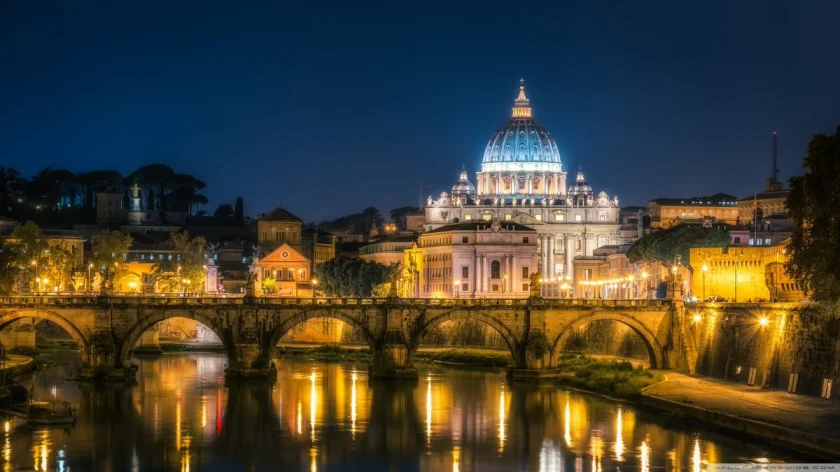And the Word became flesh and dwelt among us, full of grace and truth; we have beheld his glory, glory as of the only Son from the Father” Jn 1:14.
Father John A. Hardon, SJ, The Beatitudes 44:07
I. The Beatitudes
§ 1716 The Beatitudes are at the heart of Jesus’ preaching. They take up the promises made to the chosen people since Abraham. the Beatitudes fulfill the promises by ordering them no longer merely to the possession of a territory, but to the Kingdom of heaven: Mt 5:3–10
- Blessed are the poor in spirit, for theirs is the kingdom of heaven.
- Blessed are those who mourn, for they shall be comforted.
- Blessed are the meek, for they shall inherit the earth.
- Blessed are those who hunger and thirst for righteousness, for they shall be satisfied.
- Blessed are the merciful, for they shall obtain mercy.
- Blessed are the pure in heart, for they shall see God.
- Blessed are the peacemakers, for they shall be called sons of God.
- Blessed are those who are persecuted for righteousness’ sake, for theirs is the kingdom of heaven.
- Blessed are you when men revile you and persecute you and utter all kinds of evil against you falsely on my account.
- Rejoice and be glad, for your reward is great in heaven.
§ 1717 The Beatitudes depict the countenance of Jesus Christ and portray his charity. They express the vocation of the faithful associated with the glory of his Passion and Resurrection; they shed light on the actions and attitudes characteristic of the Christian life; they are the paradoxical promises that sustain hope in the midst of tribulations; they proclaim the blessings and rewards already secured, however dimly, for Christ’s disciples; they have begun in the lives of the Virgin Mary and all the saints.
II. The Desire for Happiness
§ 1718 The Beatitudes respond to the natural desire for happiness. This desire is of divine origin: God has placed it in the human heart in order to draw man to the One who alone can fulfill it:
We all want to live happily; in the whole human race there is no one who does not assent to this proposition, even before it is fully articulated.
How is it, then, that I seek you, Lord? Since in seeking you, my God, I seek a happy life, let me seek you so that my soul may live, for my body draws life from my soul and my soul draws life from you.
God alone satisfies.
§ 1719 The Beatitudes reveal the goal of human existence, the ultimate end of human acts: God calls us to his own beatitude. This vocation is addressed to each individual personally, but also to the Church as a whole, the new people made up of those who have accepted the promise and live from it in faith.
III. Christian Beatitude
§ 1720 The New Testament uses several expressions to characterize the beatitude to which God calls man:
- the coming of the Kingdom of God;
- the vision of God: “Blessed are the pure in heart, for they shall see God”
- entering into the joy of the Lord;
- entering into God’s rest:
There we shall rest and see, we shall see and love, we shall love and praise. Behold what will be at the end without end. For what other end do we have, if not to reach the kingdom which has no end?
§ 1721 God put us in the world to know, to love, and to serve him, and so to come to paradise. Beatitude makes us “partakers of the divine nature” and of eternal life. With beatitude, man enters into the glory of Christ and into the joy of the Trinitarian life.
§ 1722 Such beatitude surpasses the understanding and powers of man. It comes from an entirely free gift of God: whence it is called supernatural, as is the grace that disposes man to enter into the divine joy.
Blessed are the pure in heart, for they shall see God.
It is true, because of the greatness and inexpressible glory of God, that “man shall not see me and live,” for the Father cannot be grasped. But because of God’s love and goodness toward us, and because he can do all things, he goes so far as to grant those who love him the privilege of seeing him…. For “what is impossible for men is possible for God.
§ 1723 The beatitude we are promised confronts us with decisive moral choices. It invites us to purify our hearts of bad instincts and to seek the love of God above all else. It teaches us that true happiness is not found in riches or well-being, in human fame or power, or in any human achievement – however beneficial it may be – such as science, technology, and art, or indeed in any creature, but in God alone, the source of every good and of all love:
All bow down before wealth. Wealth is that to which the multitude of men pay an instinctive homage. They measure happiness by wealth; and by wealth they measure respectability…. It is a homage resulting from a profound faith … that with wealth he may do all things. Wealth is one idol of the day and notoriety is a second…. Notoriety, or the making of a noise in the world – it may be called “newspaper fame” – has come to be considered a great good in itself, and a ground of veneration.
§ 1724 The Decalogue, the Sermon on the Mount, and the apostolic catechesis describe for us the paths that lead to the Kingdom of heaven. Sustained by the grace of the Holy Spirit, we tread them, step by step, by everyday acts. By the working of the Word of Christ, we slowly bear fruit in the Church to the glory of God.
